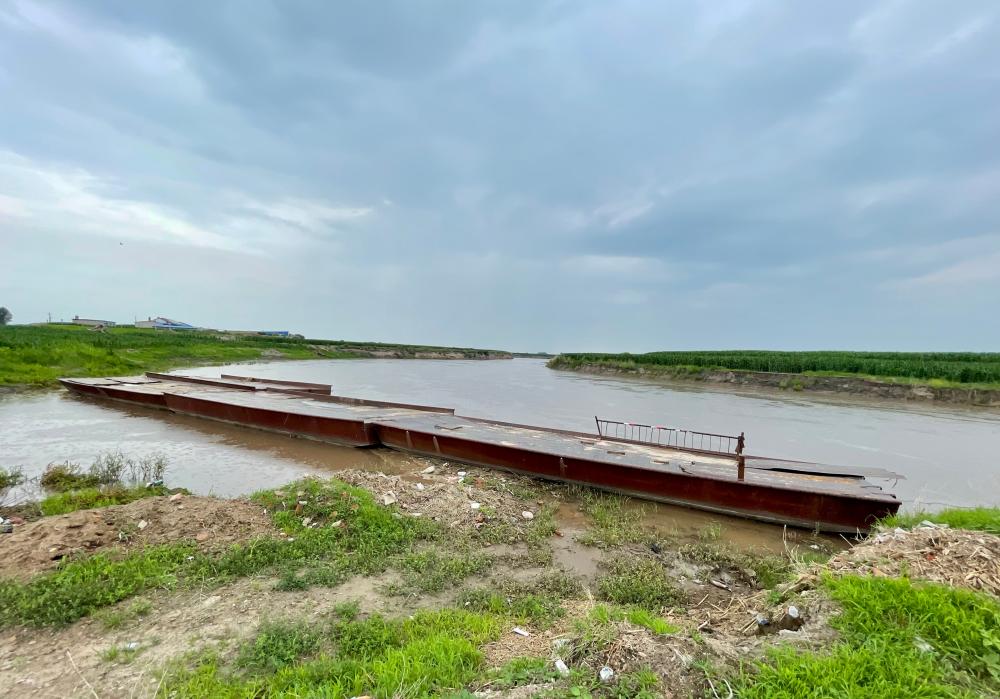How does Xinjiang's aquatic industry make a comeback?, After thousands of years, this magical tribe only eats fish and is unaware of grains
Recently, various fresh products such as rainbow trout, South American white shrimp, and crabs produced in Xinjiang have been launched one after another, selling well both domestically and internationally.
With the development of modern fisheries, the aquatic fishery resources in inland areas of China have been widely mobilized. So, do you know what kind of connection Xinjiang has with "fresh fish"? How does modern agriculture assist aquaculture? What new explorations will be made in Xinjiang's fishery industry in the future?
The History of Fish Eating
Unlike traditional public perception, Xinjiang has a long history of fish consumption and fishing.

Since the late Qing Dynasty, many fish sculptures have appeared at the Hotan Yue Tegan site. At the beginning of the 20th century, archaeologist Stein discovered a large number of fish bones at the Loulan site and a large number of fishing nets at the Milan site. In 1980, the Institute of Archaeology of the Xinjiang Academy of Social Sciences discovered tombs of the Neolithic people in the Banhe River Delta at the northern end of the Lop Nur. Among the burial objects, archaeologists discovered the remains of small fish and net fish.
Hotan Yuete Gan Site
It can be seen from this that despite the arid climate and sparse precipitation in Xinjiang, fish were once an important part of the daily life of the people of Xinjiang, nourished by the melting water of high mountain glaciers.
In fact, there are many records in ancient literature about "fish eating" and "fishing" in Xinjiang region.

In the "Classic of Mountains and Seas", there is a record that "the water of Dun Hong is more red salmon, and the water of Qiu Shi is more victorious than the mother.". The Book of Han records that there were many fish in the sea near the state of Yanqi. Historical materials such as "Northern History", "Book of Sui", "Old Book of Tang", and "New Book of Tang" also record the benefits of fish and salt in Yanqi.
Bohu County, Xinjiang, through which the Kaidu River flows
According to the "Book of Wei", a magical tribe called Yifu Wudi Kingdom once lived in the northern part of Qinghai and the eastern part of Xinjiang, including Qiemo and Ruoqiang. Its people "did not know the five grains, but only ate fish and Su Zi." The local residents all fed on fish, indicating the abundance of fishery resources.
Before the Tang Dynasty, the descriptions of fishery resources in Xinjiang were mainly concentrated in the southern areas of Xinjiang, such as the surrounding areas of the Tarim Basin. By the Yuan Dynasty, there were fishery records in the northern areas of Xinjiang: "There were many fish in the eight temples in Qizeli that could be eaten".

During the Qing Dynasty, the fishing industry, mainly focused on wild fishing, developed unprecedentedly. At that time, the literati living in Wuhuan left behind many poems about fish. Ji Yun demonstrated the scene of people using fresh fish to compete in the Wuhuan market by using the poem "Changji's new fish run through willow branches, and the market is chaotic and attracting people.". Zhang Yinhuan's "Wild Chicken, Yellow Sheep, Feet for the New Year, Sending Ice Fish from Tacheng for Thousands of Miles" describes the scene of transporting frozen fish from Tacheng to Wuhuan in winter at that time.
The Counterattack of Aquaculture
However, such a grand occasion did not last long.
Luobupo was once a giant swamp, with a maximum area of approximately 1708 square kilometers during the Qing Dynasty. However, due to river diversion, climate change, combined with factors such as agricultural development and population growth, the lake surface has become smaller and smaller. By 1921, the Tarim River and Kongque River were cut off, and the fishing resources in this region began to significantly decrease.

In the Rob people's village, residents are rowing card basins to prepare for fishing
In addition, the invasion of modern colonizers also had a huge impact on the development of Xinjiang's fisheries. The fish in the Ili River and the Erzis River mostly have migratory characteristics, and the invaders set up iron fences in the rivers, blocking the natural breeding routes of the fish, causing the two fishing areas in Ili and Tacheng to greatly shrink.
After the establishment of the People's Republic of China, it was constrained by factors such as severe winter cold, frozen water surfaces, high breeding costs, and difficult transportation. Until the 1950s, Xinjiang's fishing industry was still mainly focused on fishing. The fish introduced in the 1960s were mainly the Yangtze River water system fish such as green carp, grass carp, silver carp, and bighead carp.
With the popularization of artificial breeding technology and the acceleration of infrastructure construction such as transportation and electricity, Xinjiang's characteristic aquatic economy has also begun to develop, and "cold water fish" is one of them.

Kalasu Township, Nileke County, Ili Kazakh Autonomous Prefecture, Xinjiang is located deep in the Tianshan Mountains. The water quality of the Kashgar River, which flows through it, is clear and cool, making it suitable for large-scale aquaculture of cold water fish.
There are many varieties of cold water fish, with the main aquaculture species being salmon and trout, which have relatively high economic value. However, Nileke County in Xinjiang is rich in cold water resources, with no scorching heat throughout the year. The Kashgar River surrounding the Tianshan Mountains flows with snow water from the Tianshan Glacier, and the water temperature below 6 meters is maintained below 10 ℃ year-round, creating high-quality natural conditions for the growth of cold water fish. Therefore, exploration of cold water fish such as rainbow trout began in the local area since the 1970s.
Driven by the Heilongjiang Fisheries Research Institute of the Chinese Academy of Fishery Sciences, the cold water fish industry in Nileke County has developed rapidly, with breakthroughs in seedling breeding technology and increasingly mature aquaculture techniques. At present, Nileke County has become the largest salmon breeding base in Xinjiang, and its fish products are exported to Europe, Japan and other places.
In addition, "seawater aquaculture" is also one of the highlights of Xinjiang's fishery technology breakthroughs.

Artificial Salt Lake in Lop Nur
The salinity of natural surface water in southern Xinjiang is similar to that of seawater. By adding trace elements and probiotics to the water, artificial seawater is formed. When researchers replicate the seawater environment through "mixing", corresponding fish and shrimp fry can grow healthily.
The aquatic ecology in Xinjiang region is complex and variable, so the development of aquatic products focuses on adapting measures to local conditions. For example, the water quality of Sailimu Lake is unique, with extremely low salt content, which is not suitable for the survival and reproduction of ordinary fish. The local government has broken through the breeding bottleneck by collaborating with universities and research institutes, making Sailimu Lake a fertile ground for high-altitude salmon.
"Rich ore" to be excavated

In fact, the fishing industry in Xinjiang has long been well-known.
In 2019, the male pond fish produced in Bosten Lake was exported to Japan and South Korea. Due to the good breeding environment and high-quality fish meat, the male fish from Bosten Lake was designated as a special A product after entering the Japanese market, and later occupied 70% of the Japanese male fish market share. In 2017, Sarimu Lake high white salmon caviar was exported to Finland and became widely popular.
There is a Dafengshou (Salad of assorted fresh vegetables) harvest of pond fish in Bosten Lake, Xinjiang.
According to Cai Lingang, Chief Engineer of Xinjiang Fisheries Research Institute, due to the low level of development of fishing waters, Xinjiang's water source comes from snowy mountains, sweet and refreshing, with pure and pollution-free water quality. It is an ideal place for developing pollution-free fishing and producing organic aquatic products. At present, aquatic products from water bodies such as Bosten Lake, Sailimu Lake, and Ulungu Lake have all passed the national organic food certification.

At the same time, major aquatic leading enterprises are constantly extending their industrial chains and enhancing their value chains. According to statistics, major aquatic leading enterprises in Xinjiang have registered 20 trademarks for a total of 71 products. Among them, "Sailimu Lake High White Salmon", "Tianyun Salmon", "Glacier Fish", and "Jili Lake" are well-known trademarks.
Bohu County, Xinjiang
Industry insiders believe that the development potential of aquatic products in Xinjiang is enormous.
On the one hand, although deserts and grasslands make up the majority in Xinjiang, the water area is still vast. According to the third national land survey, the area of mudflat in the waters suitable for fishing in Xinjiang exceeds 46 million mu. At the same time, there are over 500 species of bait organisms in the water, which are sufficient to provide enough food for the growth of fish.

On the other hand, salmon and trout, which have higher economic value among cold water fish, are highly favored by consumers. Their nutritional value in elderly health care, children's intellectual development, and other aspects has been fully recognized. Their advantages in improving dietary structure have led to an expansion of the consumer group. It is expected that the domestic market consumption will reach 250000 tons by 2025.
Finally, Xinjiang actively combines fishing with tourism, develops "fishing+tourism", and accelerates the cultivation of urban leisure fishing. Currently, the economic output value of leisure fishing, mainly fishing, catering, and sightseeing tourism, has reached 273 million yuan. Among them, the Ulungu Lake Winter Fishing Cultural Tourism Festival in Fuhai County has become a national demonstration fishery cultural festival.




